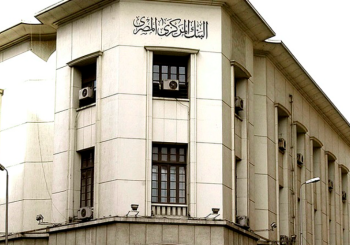Yasser Borhami, founder of the Salafist Al Nour Party, after casting his ballot [Credit: Reuters]By Viola Fahmy, Aswat Masriya
Much has been said about Egypt’s coming parliament, with pundits mostly projecting a mass return of old regime figures accounting for almost half the number of candidates contesting the race. But the results of the first round of phase one of Egypt’s parliamentary elections indicate changes to the country’s complex political scene, with new faces replacing household names and seasoned political parties.
Of all 2,548 candidates who ran as individuals in the first phase of the poll, only four won majority seats. The winners of the remaining 222 seats will have to be decided in run-offs to be held from Oct. 26-28 in Egypt and abroad.
Al-Nour Party Lags Behind
Although the Salafi al-Nour party had reaped 22 percent of seats in the 2012 parliament, the ultra-conservatives failed to rake in a single seat in this round, despite fielding 90 candidates and one electoral list in the West Delta region.
While the list has lost irrevocably, however, more than two dozen al-Nour candidates will be running as individuals having qualified for run-offs.
In the 2011/2012 electoral race al-Nour was the second largest bloc in parliament, second only to the Muslim Brotherhood.
Adel al-Dawy, researcher of Islamist groups, believes that Salafis do not have the same rallying power as the Muslim Brotherhood which is why they lost in the first half of the competition, although they boast a large following and have the financial means to spend heavily on campaigns.
Al-Dawy pointed to a fundamental difference between the Salafis and the Brotherhood, the former’s approach being “strictly ideological” as opposed to the Brotherhood’s political and pragmatic approach, hence their inabilities to mobilize their base in elections.
The Brotherhood is not participating in the ongoing elections. making this the first electoral poll held in the absence of the Muslim Brotherhood in 30 years.
The group, whose political arm the Freedom and Justice Party swept the 2012 parliamentary polls where the turnout rate was about 55 percent, has called for a boycott of the 2015 elections. Only 26 percent of eligible voters cast their ballots in round one of the first phase of elections.
Coptic Candidates Make History
The Upper Egyptian governorate of Minya alone saw 10 Coptic candidates competing in the run-offs, in an unprecedented phenomenon especially for a tribal province like Minya that regularly makes headlines for its sectarian tensions.
There are more than 10 other Coptic candidates partaking in the run-offs for individual seats.
In the 2012 parliament, only seven Copts won seats in the legislature and another five were appointed, bringing the total number of Coptic MPs to a dozen.
Ishaq Ibrahim, the Egyptian Initiative for Personal Rights officer for freedom of religion and belief explained that the dismantling and weakness of Islamic blocs and the high density of Coptic populations in some provinces are the reasons behind why 20 Coptic candidates have made it to the run-offs.
He said that when a large number of seats are assigned to individuals, voters often choose based on religious identity, added that he expects campaigning for the run-offs to mostly feature religious messages because Coptic candidates will be running against Muslim ones.
Ibrahim believes that the falling popularity of Islamists may be in the interest of the Copts in the run-offs.
Major Parties Empty-handed?
Al-Wafd Party which has a long history in Egyptian politics dating back to the early 20th century, is contesting in the run-offs with “over 30 candidates,” the head of the party told reporters Thursday.
Meanwhile, not a single candidate from the leftist al-Tagammo Party was able to qualify for the run-offs.
The liberal-leaning Free Egyptians Party may be among the exceptions, with over 50 percent of its individual candidates in the first phase qualifying for run-offs. The party had fielded 112 candidates running for individual seats, of whom 65 will get a second chance in the run-offs.
The Supreme Elections Commission announced on Wednesday that the turnout rate in the first phase of the elections, which ran from Saturday to Monday, was 26.56 percent.
With low participation rates in the poll, political parties have been reconsidering their back-up plans ahead of the second phase of voting slated for Nov. 21-23.







Comments (10)
xcmwnv54ec8tnv5cev5jfdcnv5
[…]here are some links to web sites that we link to mainly because we think they’re worth visiting[…]
ccn2785xdnwdc5bwedsj4wsndb
[…]below you will obtain the link to some web sites that we consider it is best to visit[…]